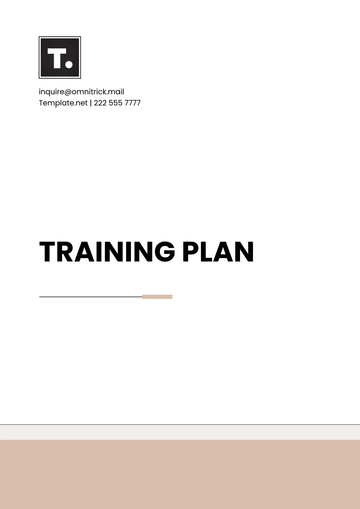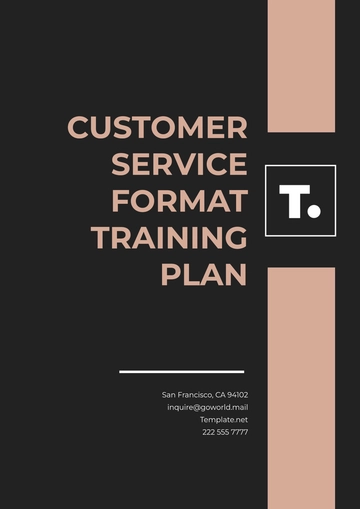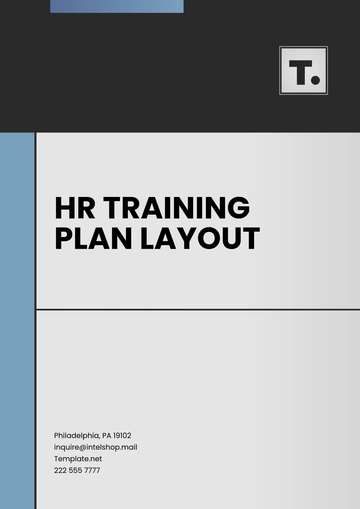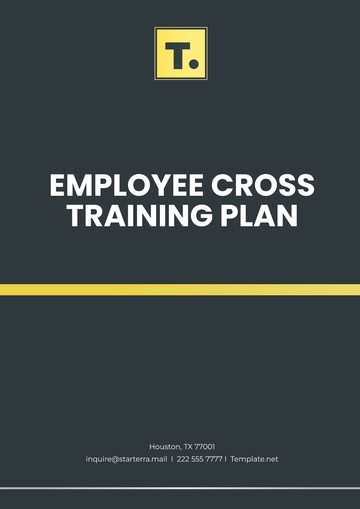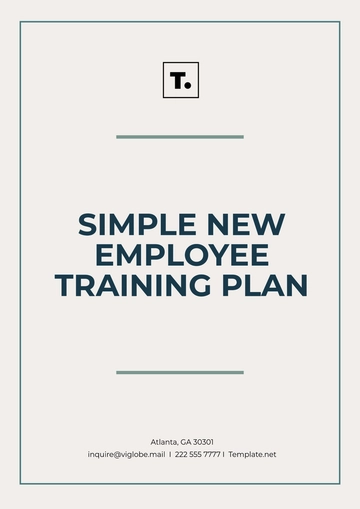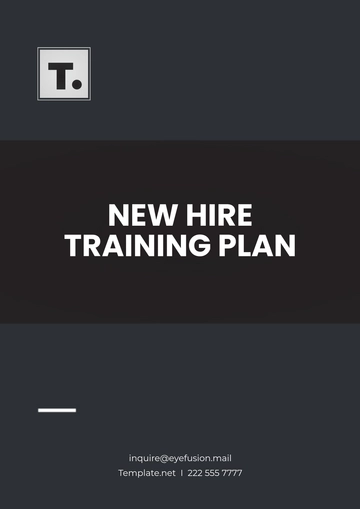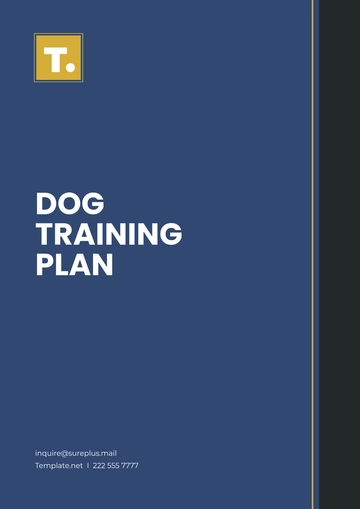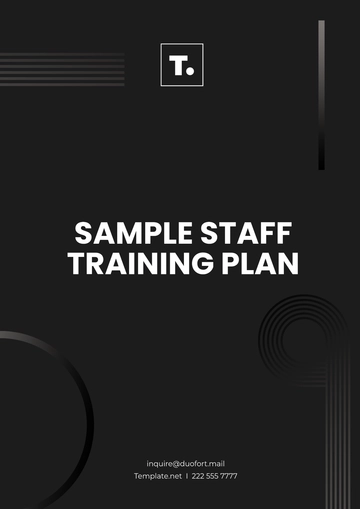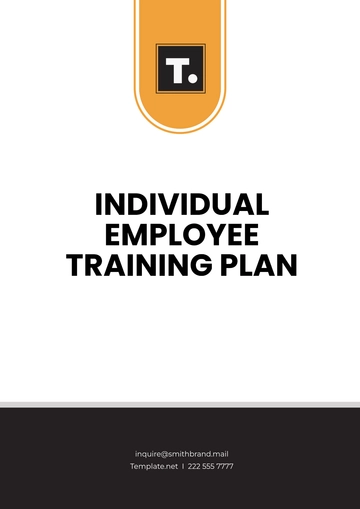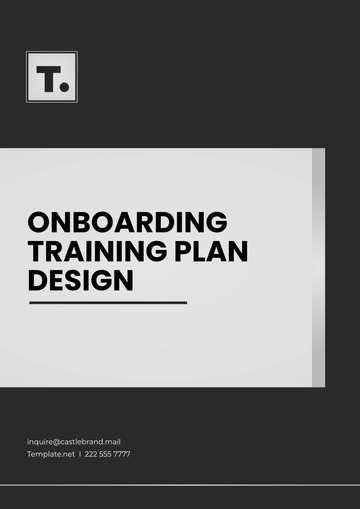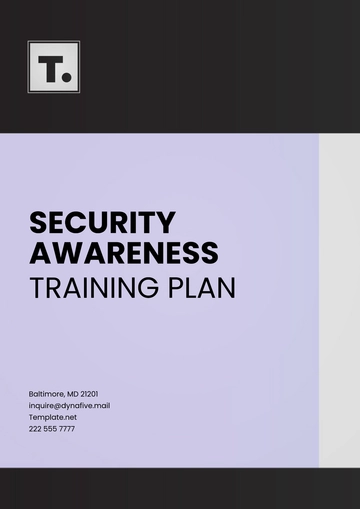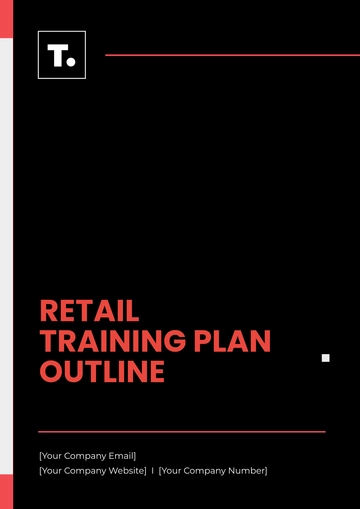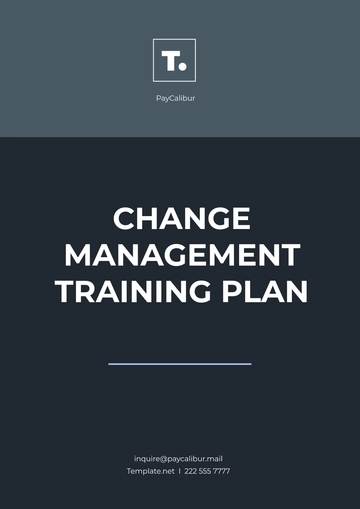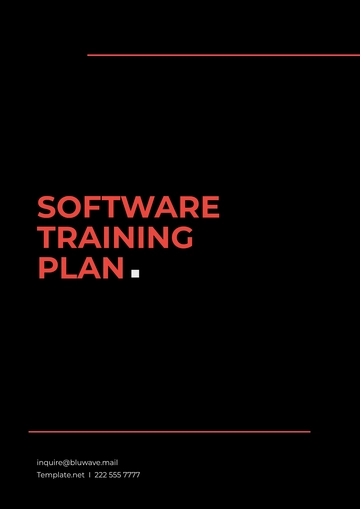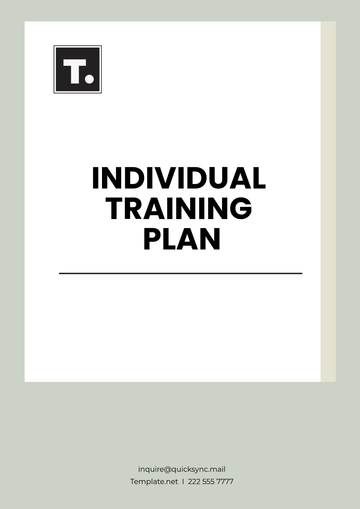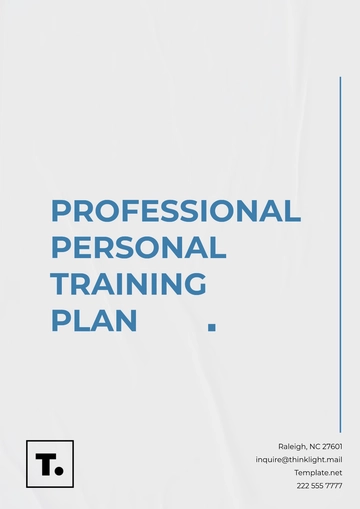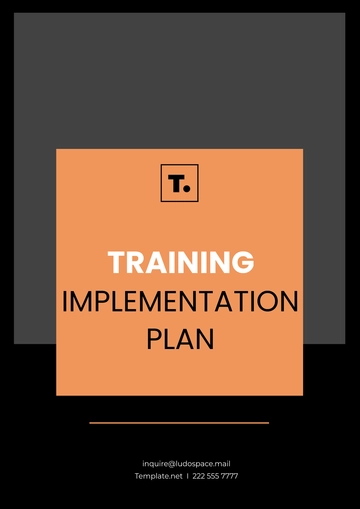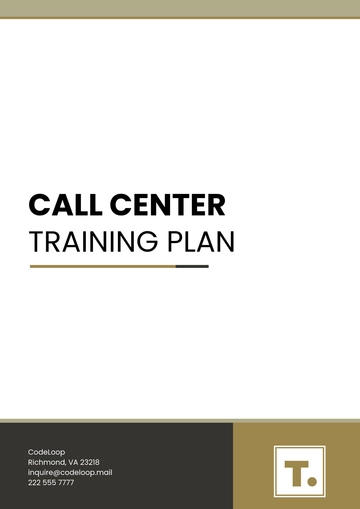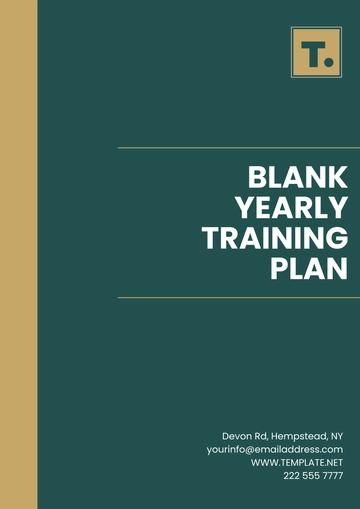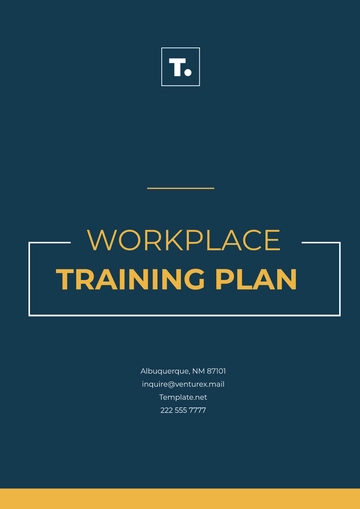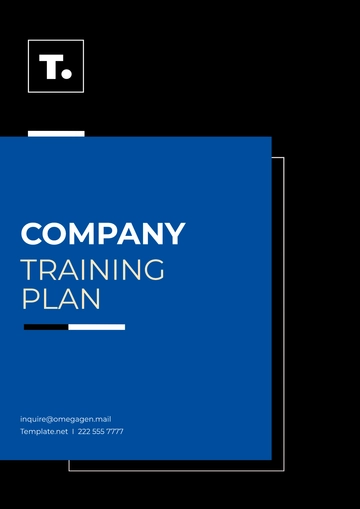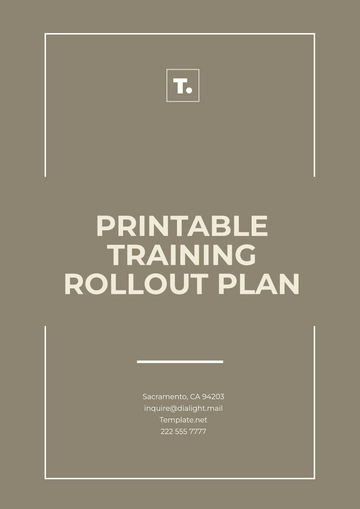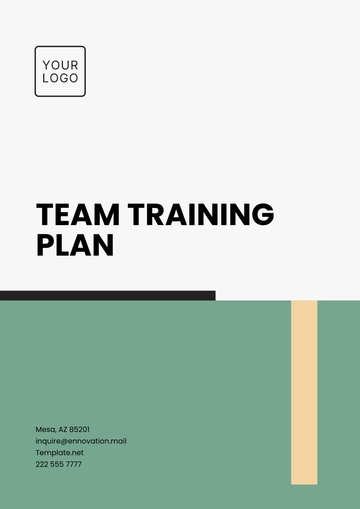Free Customer Service Format Training Plan
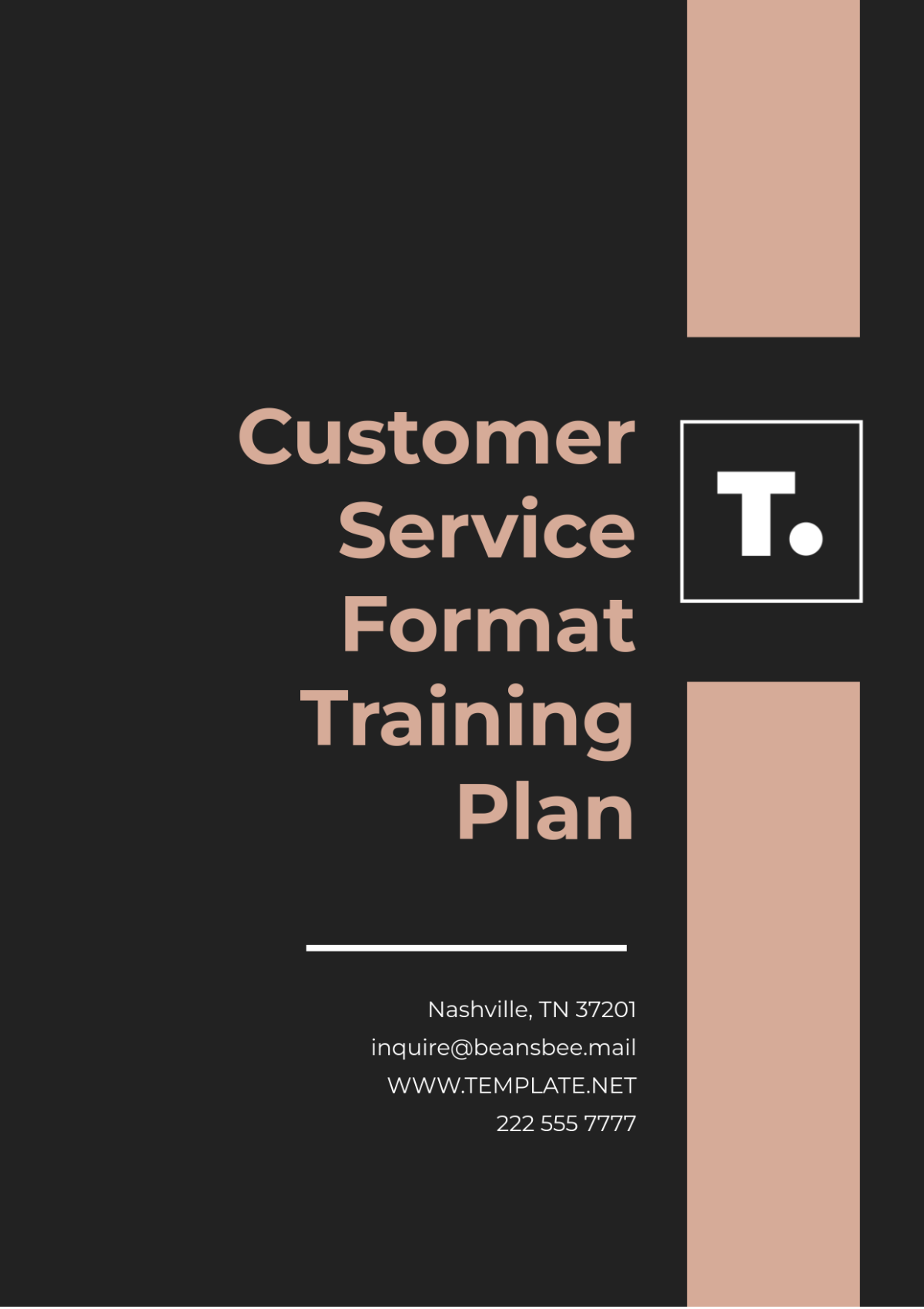
I. Introduction
Provide an overview of the importance of customer service and how it aligns with the company’s values and goals. Emphasize the purpose of the training program and how it contributes to both individual and organizational success.
Example:
At [Your Company Name], the recognition of exceptional customer service as the cornerstone of success is paramount. This meticulously designed training program aims to imbue team members with the values, skills, and knowledge essential for delivering outstanding service, thereby creating positive experiences for customers.
Through this comprehensive training initiative, [Your Company Name] endeavors to nurture a customer-centric culture within its ranks. It is firmly believed that each member of the team contributes significantly to shaping the customer experience, whether directly engaging with customers or providing support to those who do. By investing in the development of team members' customer service acumen, the organization is strategically investing in its long-term success and expansion.
II. Training Objectives
Clearly outline the key goals of the training program. Objectives should be measurable and specific, focusing on knowledge, skills, and attitudes related to exceptional customer service.
Example:
To understand the importance of customer service
To develop effective communication and problem-solving skills
To enhance product knowledge and service delivery
III. Training Schedule
Divide the training into weekly modules, each with a focused topic and set of activities. Include details for lectures, interactive exercises, role-playing scenarios, and practice sessions.
Example:
Week | Topic | Activities |
|---|---|---|
Week 1 | Introduction to Customer Service |
|
Week 2 | Effective Communication |
|
Week 3 | Product Knowledge and Service Delivery |
|
Week 4 | Problem-Solving and Conflict Resolution |
|
Week 5 | Customer Relationship Management |
|
Week 6 | Final Assessment and Evaluation |
|
IV. Assessment and Evaluation
Design and describe methods to evaluate the effectiveness of training. Include tools like quizzes, role-playing observations, and real-life customer interaction monitoring. Emphasize the importance of continuous feedback and progress tracking.
Example:
Continuous assessment and evaluation will be conducted throughout the training program to monitor progress and ensure learning objectives are met. Assessments will include quizzes, role-playing exercises, and observation of real-life customer interactions.
Feedback will be provided on a regular basis to identify strengths and areas for improvement. At the conclusion of the program, a final assessment will be conducted to evaluate overall performance and provide recommendations for further development.
V. Feedback and Continuous Improvement
Explain how feedback from both trainers and participants will be used to refine the program. Include methods for gathering customer feedback to ensure the training addresses real-world challenges effectively.
Example:
Feedback is essential for continuous improvement in customer service. Regular feedback sessions will be conducted with trainers to discuss progress, address challenges, and set goals for improvement. Opportunities for self-assessment and peer feedback will likewise be provided to encourage reflection and collaboration.
Feedback from customers will also be solicited through satisfaction surveys and feedback forms, allowing us to identify areas for improvement and ensure we are meeting their needs effectively.
VI. Conclusion
Summarize the expected outcomes of the training. Reiterate the importance of the acquired skills and how they align with organizational goals. Motivate participants by highlighting how their contributions impact the company’s success.
Example:
By completing the Customer Service Training Plan, our team will be equipped with the skills and knowledge necessary to deliver exceptional service and exceed customer expectations. With a focus on effective communication, problem-solving, and product knowledge, our team will be well-positioned to handle a wide range of customer inquiries and issues. We are confident that this training program will not only benefit our team but also contribute to the overall success of our organization by fostering positive relationships with our customers.
- 100% Customizable, free editor
- Access 1 Million+ Templates, photo’s & graphics
- Download or share as a template
- Click and replace photos, graphics, text, backgrounds
- Resize, crop, AI write & more
- Access advanced editor
Improve your customer service team's effectiveness with the Customer Service Training Plan Template, offered by Template.net. This fully customizable, downloadable, and printable template is ideal for developing comprehensive training programs. Easily editable in our AI Editor Tool, it allows you to personalize training content to improve communication, problem-solving skills, and customer satisfaction.
You may also like
- Finance Plan
- Construction Plan
- Sales Plan
- Development Plan
- Career Plan
- Budget Plan
- HR Plan
- Education Plan
- Transition Plan
- Work Plan
- Training Plan
- Communication Plan
- Operation Plan
- Health And Safety Plan
- Strategy Plan
- Professional Development Plan
- Advertising Plan
- Risk Management Plan
- Restaurant Plan
- School Plan
- Nursing Home Patient Care Plan
- Nursing Care Plan
- Plan Event
- Startup Plan
- Social Media Plan
- Staffing Plan
- Annual Plan
- Content Plan
- Payment Plan
- Implementation Plan
- Hotel Plan
- Workout Plan
- Accounting Plan
- Campaign Plan
- Essay Plan
- 30 60 90 Day Plan
- Research Plan
- Recruitment Plan
- 90 Day Plan
- Quarterly Plan
- Emergency Plan
- 5 Year Plan
- Gym Plan
- Personal Plan
- IT and Software Plan
- Treatment Plan
- Real Estate Plan
- Law Firm Plan
- Healthcare Plan
- Improvement Plan
- Media Plan
- 5 Year Business Plan
- Learning Plan
- Marketing Campaign Plan
- Travel Agency Plan
- Cleaning Services Plan
- Interior Design Plan
- Performance Plan
- PR Plan
- Birth Plan
- Life Plan
- SEO Plan
- Disaster Recovery Plan
- Continuity Plan
- Launch Plan
- Legal Plan
- Behavior Plan
- Performance Improvement Plan
- Salon Plan
- Security Plan
- Security Management Plan
- Employee Development Plan
- Quality Plan
- Service Improvement Plan
- Growth Plan
- Incident Response Plan
- Basketball Plan
- Emergency Action Plan
- Product Launch Plan
- Spa Plan
- Employee Training Plan
- Data Analysis Plan
- Employee Action Plan
- Territory Plan
- Audit Plan
- Classroom Plan
- Activity Plan
- Parenting Plan
- Care Plan
- Project Execution Plan
- Exercise Plan
- Internship Plan
- Software Development Plan
- Continuous Improvement Plan
- Leave Plan
- 90 Day Sales Plan
- Advertising Agency Plan
- Employee Transition Plan
- Smart Action Plan
- Workplace Safety Plan
- Behavior Change Plan
- Contingency Plan
- Continuity of Operations Plan
- Health Plan
- Quality Control Plan
- Self Plan
- Sports Development Plan
- Change Management Plan
- Ecommerce Plan
- Personal Financial Plan
- Process Improvement Plan
- 30-60-90 Day Sales Plan
- Crisis Management Plan
- Engagement Plan
- Execution Plan
- Pandemic Plan
- Quality Assurance Plan
- Service Continuity Plan
- Agile Project Plan
- Fundraising Plan
- Job Transition Plan
- Asset Maintenance Plan
- Maintenance Plan
- Software Test Plan
- Staff Training and Development Plan
- 3 Year Plan
- Brand Activation Plan
- Release Plan
- Resource Plan
- Risk Mitigation Plan
- Teacher Plan
- 30 60 90 Day Plan for New Manager
- Food Safety Plan
- Food Truck Plan
- Hiring Plan
- Quality Management Plan
- Wellness Plan
- Behavior Intervention Plan
- Bonus Plan
- Investment Plan
- Maternity Leave Plan
- Pandemic Response Plan
- Succession Planning
- Coaching Plan
- Configuration Management Plan
- Remote Work Plan
- Self Care Plan
- Teaching Plan
- 100-Day Plan
- HACCP Plan
- Student Plan
- Sustainability Plan
- 30 60 90 Day Plan for Interview
- Access Plan
- Site Specific Safety Plan
